About this course
Gain the Department for Education's recommended professional qualification for SENCOs with School Improvement Liverpool and Liverpool John Moores University.
- APPLY DIRECT TO SCHOOL IMPROVEMENT LIVERPOOL
- Enrol on this practical, relevant programme, designed by SENCOs for SENCOs
- Meet the learning outcomes for the National Award for SEN Coordination
- Study assignments designed to complement your day-to-day work and enjoy realistic timelines
- Embark on six full day sessions, all in term time
- Benefit from additional twilight sessions arranged to meet the needs of the cohort
- Learn from experienced and highly regarded tutors who are approachable and willing to help
- Network and share ideas and best practice
- Consider literature that impacts on the SENCO role
- Access University resources and benefits
The 12 month programme prepares aspiring and new SENCOs to meet the national learning outcomes that all SENCOs must achieve in their first three years of being in post.
Developed by School Improvement Liverpools Inclusive Learning team, alongside colleagues from LJMU, our programme is relevant and accessible.
It carries 60 credits at Level 7 (Masters level).
Designed to meet the individual professional development needs of SENCOs in a variety of settings, the programme develops student confidence and competency through extending and enhancing professional expertise.
Enthusiastic, expert and highly regarded tutors enable you to: develop practitioner enquiry skills and disseminate findings; review personal professional achievements and development needs and provide evidence of your commitment to development.
Study on this programme prepares you to provide leadership and professional guidance to colleagues and work closely with staff, parents and carers. It challenges you to promote person-centred, inclusive practice in which the interests and needs of pupils with SEN and/or disabilities are at the heart of everything you do.
Course modules
Discover the building blocks of your programme
What will it cover?
Part A - Professional knowledge and understanding the legislative context and theoretical concepts that underpin effective leadership and practice of SEN Part B - Expertise and capabilities to lead and coordinate provision effectively Part C - Personal and professional qualities to make a positive impact on the ethos and culture in schools and other settings
Further guidance on modules
Modules are designated core or optional in accordance with professional body requirements, as applicable, and LJMU’s Academic Framework Regulations. Whilst you are required to study core modules, optional modules provide you with an element of choice. Their availability may vary and will be subject to meeting minimum student numbers.
Where changes to modules are necessary these will be communicated as appropriate.
Core modules
The Role of the SENCo
20 credits
20 credits
This module provides a grounding in theory, research and practice for educational professionals. It is particularly suitable for those keen to develop their capabilities as SENCOs, their understanding of policy contexts and their ability to improve educational outcomes and organisational effectiveness. The module contributes to attainment of the National Award for Special Educational Needs Coordinators (NASC). It aims to:
- enable you to expand your knowledge and understanding of the role of SENCO through learning based on engagement with current educational theory, research, policy and practice
- develop your critical professional practice through analysis of, reflection on, and engagement with this knowledge and understanding in your professional setting
- develop professionally and personally through engagement with the module
Teaching Young People with Special Educational Needs
20 credits
20 credits
This module aims to:
- expand your knowledge and understanding of learning difficulties through learning based on engagement with current educational theory, research, policy and practice
- develop your critical professional practice through analysis of, reflection on, and engagement with this knowledge and understanding in your professional setting
- develop professionally and personally through engagement with the module
Professional Development for Leadership
20 credits
20 credits
This module aims to:
- expand your knowledge and understanding of professional development for leadership and management through learning based on engagement with current educational theory, research, policy and practice in Special Educational Needs Coordination
- develop critical professional practice through analysis of, reflection on, and engagement with this knowledge and understanding in your professional setting
- develop you professionally and personally
Professional accreditation/links
The PgCert SENCO programme meets the learning outcomes for the National Award for Special Educational Needs Coordination (NASENCO).
In September 2009, it became law for every new SENCO in a mainstream school to gain the Masters-level NASENCO within 3 years of taking up the post.
Your Learning Experience
An insight into teaching on your course
Study hours
This programme is taught during six full training days and six additional twilight sessions. These are organised on a half-termly basis at the Toxteth Annexe Conference Centre and the IM Marsh Campus in South Liverpool.
Teaching methods
This programme has been carefully mapped against the learning outcomes of the National Award for Special Educational Needs Coordination (NCTL, June 2014). It utilises a wide range of activities to develop learning, with an emphasis on teaching approaches which build on your experience in educational workplaces.
Learning activities are designed to encourage critical engagement with literature; theory; research and critical analysis and reflection on practice.
Lectures and workshops are highly interactive drawing on your knowledge, understanding and skills in analysing and constructing responses to real problems and then developing these understandings through reference to academic literature.
Applied learning
The blended learning approach on this programme involves workplace learning and practical activities with peer and facilitated learning and other pieces of work carried out in your workplace.
How learning is monitored on your programme
To cater for the wide-ranging content of our courses and the varied learning preferences of our students, we offer a range of assessment methods on each programme.
Where you will study
What you can expect from your School
Based in the new Education Building in the heart of the Mount Pleasant campus, the School of Education features a wide range of cutting-edge facilities, including a pedagogy room, lecture rooms, computing facilities and a nearby Outdoor Learning Zone for our Natural Curriculum projects. Students also benefit from independent study spaces, a close-by cafeteria and library, and access to student welfare and support.
Career paths
Further your career prospects
LJMU has an excellent employability record with 96% (HESA 2018) of our postgraduates in work or further study six months after graduation. Our applied learning techniques and strong industry connections ensure our students are fully prepared for the workplace on graduation and understand how to apply their knowledge in a real world context.
All newly appointed SENCOs must achieve a National Award in Special Educational Needs Co-ordination within three years of appointment. This programme is therefore central to career progression for all serving SEN Coordinators in Primary and Secondary schools. Its focus on leadership also provides professional development opportunities for those seeking to progress their career in this direction.
Tuition fees and funding
The University reserves the right to increase tuition fees in accordance with any changes to the maximum allowable fees set by the UK Parliament. In the event of such a change, any fee increase will be subject to a maximum cap of 10% of the total course cost as originally stated at the time of your offer.
Fees
The fees quoted at the top of this page cover registration, tuition, supervision, assessment and examinations as well as:
- library membership with access to printed, multimedia and digital resources
- access to programme-appropriate software
- library and student IT support
- free on-campus wifi via eduroam
Additional costs
Although not all of the following are compulsory/relevant, you should keep in mind the costs of:
- accommodation and living expenditure
- books (should you wish to have your own copies)
- printing, photocopying and stationery
- PC/laptop (should you prefer to purchase your own for independent study and online learning activities)
- mobile phone/tablet (to access online services)
- field trips (travel and activity costs)
- placements (travel expenses and living costs)
- student visas (international students only)
- study abroad opportunities (travel costs, accommodation, visas and immunisations)
- academic conferences (travel costs)
- professional-body membership
- graduation (gown hire etc)
Funding
There are many ways to fund postgraduate study for home and international students. From loans to International Scholarships and subject-specific funding, you’ll find all of the information you need on our specialist postgraduate funding pages.
Please be aware that the UK’s departure from the EU may affect your tuition fees. Learn more about your fee status and which tuition fees are relevant to you.
Entry requirements
You will need:
Qualification requirements
Undergraduate degree
- minimum 2:2 honours degree or recognised equivalent
- Qualified Teacher Status (QTS)
- a Certificate in Education (post 16) with appropriate professional experience
Further information
-
Extra Requirements
- All offers are conditional on applicants securing satisfactory Enhanced DBS Disclosure and health checks
How to apply
Securing your place at LJMU
Applications for the SENCO course are managed by School Improvement Liverpool. You should apply online via their website.
Once you have booked your place via the School Improvement Liverpool website, your reservation will be confirmed. As soon as you receive reservation confirmation, please contact Yvonne Sutton at yvonne.sutton@si.liverpool.gov.uk immediately in order to complete essential paperwork to secure your place, prior to the course start date.
Your university life
From accommodation and academic support to clubs and societies. Find out what LJMU has to offer.
Related Links
Talk to our students
Connect with a current LJMU student for advice and guidance on university life, courses and more.
See what our students are saying
At LJMU we want you to know you’re making the right choice by studying with us. You can see what our students are saying about their experience with us through their reviews on the following websites:
Related Links
News and views
Browse through the latest news and stories from the university
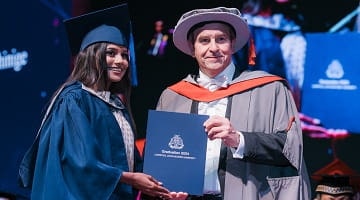
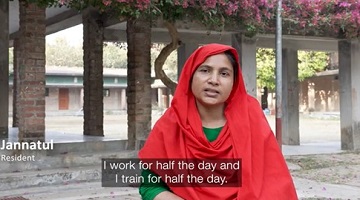
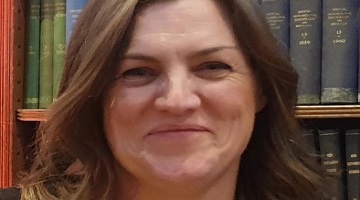
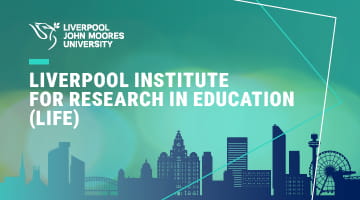
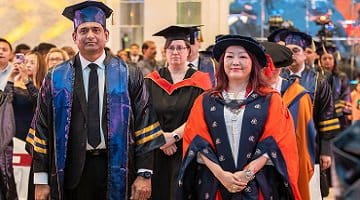

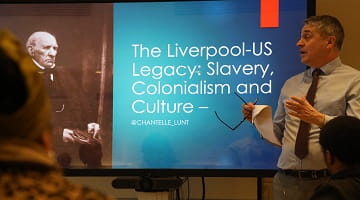
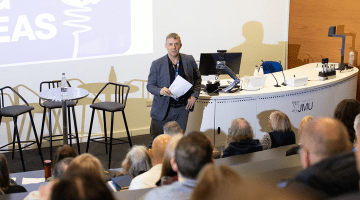


The University reserves the right to withdraw or make alterations to a course and facilities if necessary; this may be because such changes are deemed to be beneficial to students, are minor in nature and unlikely to impact negatively upon students or become necessary due to circumstances beyond the control of the University. Where this does happen, the University operates a policy of consultation, advice and support to all enrolled students affected by the proposed change to their course or module.















